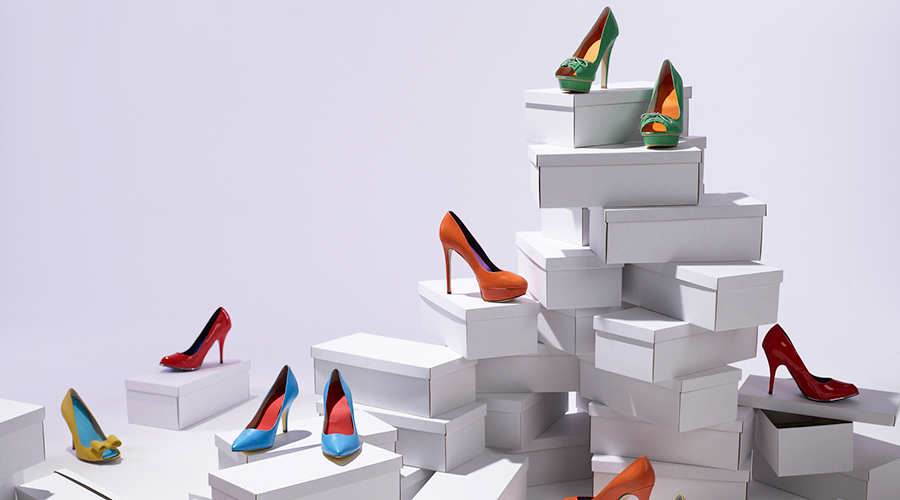Luxury brands are all around us, though by design we don’t all buy luxury products very often. Maybe you’ve looked at the price of a luxury coat and wished you could own it, or maybe you enjoy treating yourself to a luxury perfume or cologne. Whatever it is, luxury brands can command a high sale price thanks to their advertising and the way they market themselves. This can also work just as well in hospitality, with luxury hotels and high-end spas commanding a higher price point.
Looking to get into luxury marketing? You can gain a lot of the skills needed for this when you study hospitality management or undertake a Master’s in luxury management at Les Roches.
What is luxury product marketing?

Luxury product marketing is all about promoting and advertising high-end items. The key aim is to entice customers to buy the product, as well as actively maintain and nurture a certain image for the brand. Product marketing is highly competitive and a lot of luxury brands have to make sure that consumers view their products as high-end in order to maintain sales. This can include showing what the luxury brand offers that other brands do not, as well as promoting a particular lifestyle that their customers either have or aspire to. Of course, consumers are also becoming more familiar with traditional marketing techniques, so luxury product marketing has to remain inventive to keep ensuring sales.
How does luxury product marketing apply to hospitality?
As with any industry where you sell directly to consumers, hospitality also has luxury brands. From Four Seasons to The Ritz, there are plenty of hotels, spas, and other hospitality venues that are well known for their luxury offerings and high-end service, plus new luxury facilities trying to break into the field all the time. This means that there are plenty of times in a hotel management career that you can benefit from having knowledge of luxury marketing, whether you want to work for one of the most recognized hotels in the world or open your own luxury hotel.
What qualifies as a luxury brand?
There is no strict metric that defines what is and isn’t a luxury brand. One of the key things that any luxury item should have is desirability. Luxury brands make sure that consumers view them as something they want, either for the actual inherent value of what they offer or for the status that using these brands confers.
Luxury brands are also seen as:
- Reliable
- High quality
- Expensive
- Personable and tailored to individual customers
What are luxury brands compared to regular brands?
One of the key differences between luxury brands and regular brands is the exclusivity of luxury brands. A lot of the assets listed above can apply to premium brands as well. Many premium brands focus on having high-quality and reliable offerings that are more tailored to customers than standard services. However, these are more readily available, even though the price point is often higher than lower-end brands. Luxury brands are often exclusive and have a sense of scarcity which helps encourage how desirable they are.
Marketing to high-end consumers

Marketing to high-end customers is different from regular marketing, though a lot of the same skills and knowledge still apply. High-end, luxury services have to focus on desirability and exclusivity. While other brands might want to make sure that their customers see a lot of adverts for their services, luxury brands need to be more selective in how they reach out to possible consumers. This counts regardless of whether you are a luxury fashion company, a luxury car company, or in the hospitality industry. At the same time though, you have to know how to ensure name recognition while not wasting time and money by actively advertising to the wrong target audience.
Les Roches’ intensive Master’s degree program teaches you all you need to know about how to market and develop luxury hospitality brands.

Understanding the luxury consumer
One of the key points in any type of marketing is knowing your audience. In high-end sales, there are a lot of different things to consider about affluent customers, though they are not all going to be relevant to every luxury brand. This includes:
- Wanting reliability – Many luxury consumers want to know that they are getting something that will meet their needs, now and in the future. This means picking hospitality venues where they will get great customer service as well as aftercare and somewhere where they know they will get the same great service every time they visit.
- Wanting uniqueness – A big factor in luxury brands is being able to offer customers exactly what they want. In hospitality, this means meeting the needs of guests, even if it is something outside the usual scope of what you offer.
- Service over price – Luxury consumers care more about the service they are getting rather than the price tag.
- Sustainability – More and more, there are concerns about sustainability. A lot of luxury consumers want the best, but they want to know that it does not come at the cost of harming the planet or the people involved.
- Conspicuous wealth vs. quiet wealth – Depending on the type of luxury consumer, some may want to have their wealth obvious, which means a hotel’s brand is more important to them. Others might prefer hotels that are more low-key and do not advertise as much.
The different approaches to luxury marketing

There are lots of different approaches that can help you with building and marketing a luxury brand. Most of them focus on making sure that consumers see your brand as being in the top range of options, though this can be a very involved process.
The first step for a marketing manager would be to figure out what the target audience is. From there, you can work on your strategy.
Luxury brands strategy for hospitality
Each luxury brand will need its own bespoke luxury marketing strategy to suit its target audience, position in the industry, and what they offer. Some good strategies that luxury brands follow are:
- Building trust – Luxury customers want reliability and they want to know that they can trust you. This means you have to follow through on promises you make, resolve problems as quickly as possible, and present yourself as a leader in the industry by having a solid presence online.
- Choosing the right channels to reach out – Luxury consumers will not always use the same methods of communication as other consumers, so you need to be sure to pick the right ways to get in touch. A large part of hospitality digital marketing is knowing how to reach out to people for the best effect.
- Making customers aware of their options – Having a bespoke package is a large part of luxury hospitality. It’s important to make sure that customers know they can have options when they are your guest.
- Build a strong rapport with customers – Luxury is all about personalization, so make sure that your marketing focuses on building a strong relationship with individual clients to deliver a great customer experience.
- Build brand image – For people who want to feel like they are using the best service possible, having a good brand image can help. However, you have to know how to avoid this coming across as too brash or too much like the advertising from regular brands.
- Be confident – Confidence in your luxury hotel will go a long way to making people see the same value you see in it.
High-end marketing in hospitality: summary
There are plenty of luxury brands in hotels, spas, and reports that all need to utilize high-end marketing. Having a good awareness of marketing luxury brands can help advance your hospitality career path into the luxury industry. Whether you want to work in marketing for a major chain or start your own luxury hotel, one of our degrees in hospitality can give you a good grounding in what you need to know. You can even specialize in a Master’s degree in luxury management.




